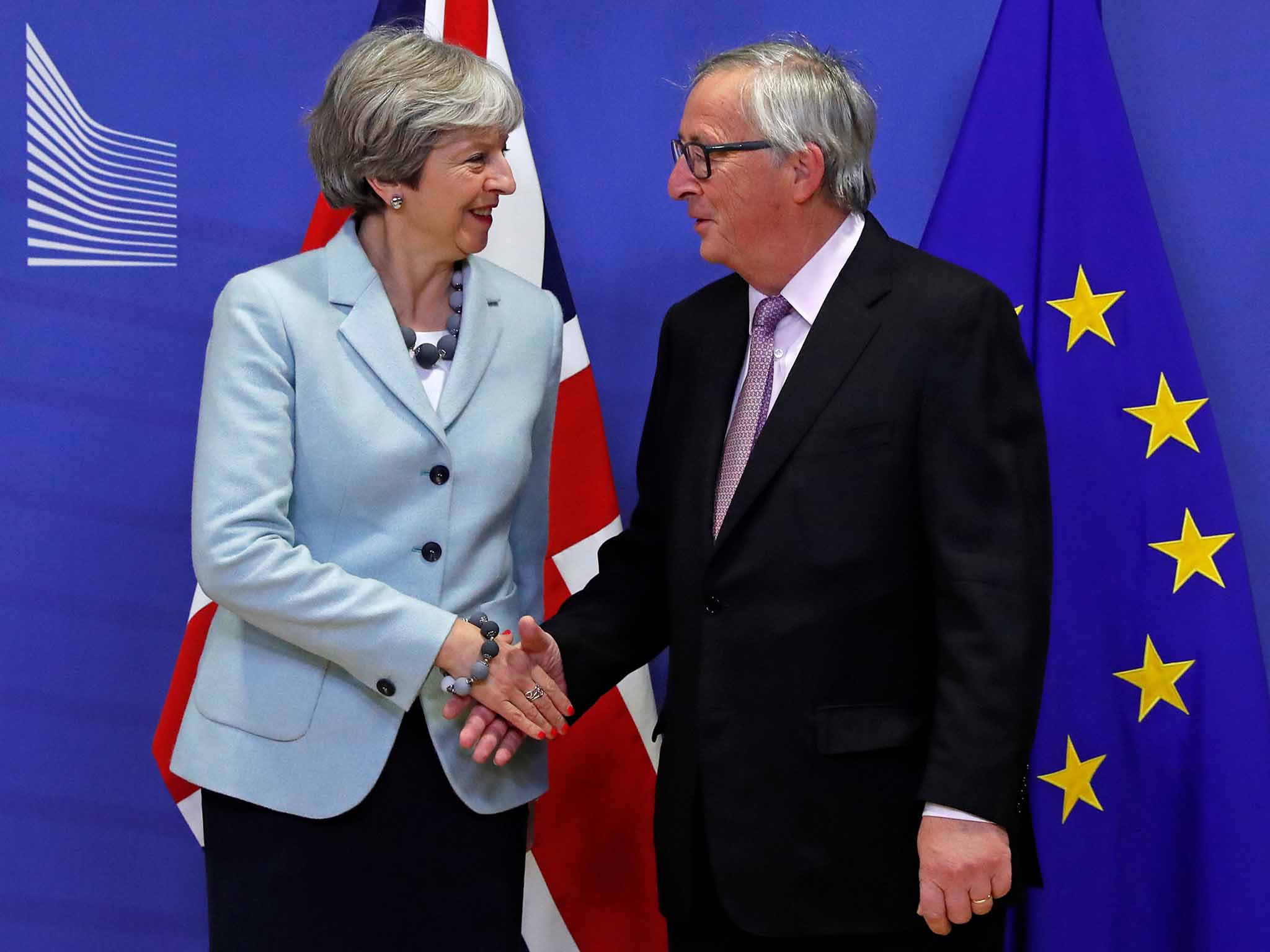Your support helps us to tell the story
From reproductive rights to climate change to Big Tech, The Independent is on the ground when the story is developing. Whether it's investigating the financials of Elon Musk's pro-Trump PAC or producing our latest documentary, 'The A Word', which shines a light on the American women fighting for reproductive rights, we know how important it is to parse out the facts from the messaging.
At such a critical moment in US history, we need reporters on the ground. Your donation allows us to keep sending journalists to speak to both sides of the story.
The Independent is trusted by Americans across the entire political spectrum. And unlike many other quality news outlets, we choose not to lock Americans out of our reporting and analysis with paywalls. We believe quality journalism should be available to everyone, paid for by those who can afford it.
Your support makes all the difference.Britain will likely end up paying between £35bn and £39bn to the EU under the Brexit deal struck by Theresa May early on Friday morning, it is understood.
Though negotiators have avoided putting an official figure on the financial settlement in the joint text agreed last night, British officials in Brussels close to the discussions say the methodology should produce a net bill of less than £40bn.
Downing Street also gave the nod to the calculations on Friday morning – though hardline eurosceptics such as Nigel Farage described the figure as “humiliating” and “way more than we need to pay”.
The figure is net rather than gross – in that it subtracts the smaller amount of money the EU owes from the larger amount of money Britain owes the bloc.
Under the plan, the UK is expected to pay somewhere between €17bn and €18bn into the 2019 ‘multi annual financial framework’ (MFF) – effectively the EU’s budget round.
It will also pay between €21bn and €23bn into the so-called “RAL” outstanding at the end of 2020 – effectively a credit facility for the EU whose acronym come from the French term “reste à liquider”.
Officials also expect the UK to pay between €2bn to €4bn for actual liabilities Britain owes the EU – mostly things like the future pensions of European civil servants.
But the EU also owes Britain its stake of the European Investment Bank’s capital, which is around €40 and €45 billion, and will pay that back to the UK over the long term.
The joint text agreed early on Friday morning has scant detail about the payment schedule, but is clear that the UK won’t have to make any advance payments it wouldn’t be making in the EU.
“Payments arising from the financial settlement will become due as if the UK had remained a Member State. In particular, the UK will not be required to incur expenditures earlier than would be the case had it remained a Member State unless agreed by both sides,” the joint text says.
“It may be appropriate for the UK and the Union to agree on a simplified procedure for settling some elements of the payment schedule in the second phase of negotiations. Such a procedure should be based on an agreed forecast and, where appropriate, provision for subsequent review and correction.”
Boris Johnson, who had previously said the EU could “go whistle” if it wanted a large divorce bill said yesterday he had only been referred to bills “in the region of £80bn or £100bn”.
“The financial offer we are making is very good but it is nowhere near the sums that I was first invited to comment on,” he said.
The financial agreement, along with deals on the Northern Ireland border and citizens’ rights, means Theresa May is likely to be given the green light to move onto trade and transition talks a European Council summit in Brussels next week.

Join our commenting forum
Join thought-provoking conversations, follow other Independent readers and see their replies
Comments